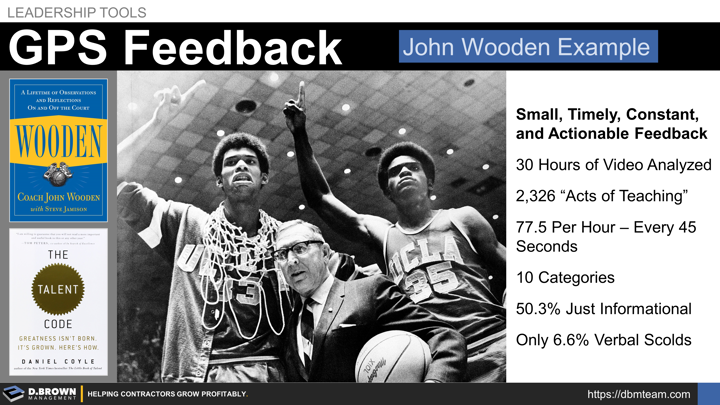It is easy to get enamored with the scoreboard at the game. The scoreboard is for the fans. The scoreboard lets the players know the basics of where they are at. Detailed scorecards like sabermetrics in baseball (Moneyball book/movie) track another level of valuable detail on each player which Billy Bean leveraged at the Oakland Athletics to compete with far better funded teams.
As valuable as scorecards and scoreboards are, they are just one part of a management system. They range from useless to damaging without the right strategic choices, effective training, and management. If scorekeeping alone drove results, we would not see the inverse relationship between fitness trackers and fitness levels.
"We don't rise to the level of our expectations; we fall to the level of our training." - Archilochus
This is wisdom from Greece in 650 BC and frequently cited by special operations. All the best coaches, military leaders, project leaders, business leaders, and parents understand this deeply.
All "walk the job" constantly and study the environment rigorously seeing every detail. All are in constant communication providing seemingly minor reinforcements and course corrections. They prioritize based on resources and balance out training and coaching effectively as part of their management accountabilities.
Daniel Coyle called this "GPS Feedback" in The Talent Code: Greatness Isn't Born. It's Grown. Here's How.
One of the people he cited was John Wooden, who was known not only for having one of the longest records of winning in history, but also for his detailed and individualized coaching plans for each training session. He was also revered for coaching the players holistically on life as well as basketball.
Wooden: A Lifetime of Observations and Reflections on and off the Court
In 1976, two psychologists (Roland Tharp & Ronald Gallimore) studied 30 hours of John Wooden's coaching and then video publishing their results in Psychology Today - What a Coach can Teach a Teacher.
- 30 hours of video analyzed
- 2,326 "Acts of Teaching" observed
- Average of 77.5 per hour or once every 45 seconds
- Broken down into 10 categories with percentages assigned
- 50.3% were just informational such as "drop your elbow"
- Only 6.6% were verbal scolds
Projects are often won by relatively small percentages against multiple competitors. Project success, which we all know is very different than “winning” the project, depends on thousands of details over many months, executed well. Company success depends on dozens or hundreds of projects all executed successfully.
Performance improvement is heavily a factor of:
- Quantity of feedback given
- How actionable the feedback is
- Quantity of cycles to put that feedback into use
Some people will say they love “positive” feedback. We all like hearing good things. Some people would say that it only helps to give “negative” feedback. We need to know when we are doing something wrong.
Both of those statements are logical but not useful in improving performance. Giving small bits of regular feedback that can immediately be put into use is what will make the biggest difference. This is a very hard skill to develop and requires deliberate practice on the part of the people learning to give effective feedback.
- Set your first standard
- Develop a simple feedback loop
- Act upon that feedback to continuously improve both the standard and the execution

